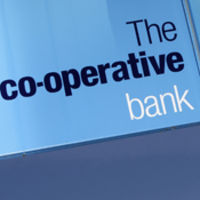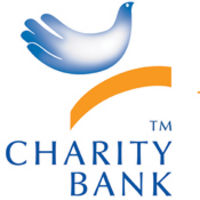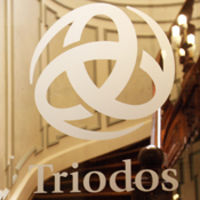The Co-op is riding the ethical banking
wave by taking over 632 Lloyds banking group branches. But what makes a
bank ethical, and what else is on offer in the UK? Channel 4 News
investigates.

It is the ethical banking sector that appears to be benefiting. As well as the announcement that the Co-operative bank is taking over 632 Lloyds branches, there has been a huge move towards more ethical banks. Nationwide Building Society reported a 40 per cent increase in current account in one week, Triodos Bank had a 51 per cent increase in online savings account applications, and web traffic to Charity Bank has increased by 500 per cent in the last two weeks.
As with any ethical consumer choice, a range of criteria is used to assess ethical credibility. In its comprehensive guide to ethical banking, Ethical Consumer picks out four main areas - environmental, animal rights, political and human rights - and measures banks' investments against these criteria.
This compares with the main high street banks, which have at various times been accused of financing the arms trade, tax avoidance, investing in oil and nuclear industries, and of course, lining the pockets of their directors. Not to mention their customers: Barclays acts as the banker to arms manufacturer BAE Systems, HSBC is banker for mining company Rio Tinto, and oil company BP banks at Natwest.
Ethical banks do tend to be smaller and provide more specialist services. But some offer competitive rates on the products they do provide, and many rate very highly in consumer satisfaction. Smaller models such as peer-to-peer lending (zopa.com, for example), community development finance institutions and friendly societies are becoming more popular, as are credit unions (find your local credit union here) which offer loans to low-income customers and invest in local communities.
Below are five banks and lenders from across this specialist sector, who are making their mark in different ways in the ethical finance market.

The UK's leading ethical bank, the Co-operative - and its internet arm, Smile - was the first such institution to launch a comprehensive ethical policy back in 1992. It covers seven human rights areas, five environmental, four international development and five animal welfare.
The Co-op has 350 branches in the UK, plus the 632 it is due to take over from Lloyds banking group and offers internet and telephone banking. And in seeking to compete with the big five high street banks, it also offers competitive products for current accounts, savings and investments.
The Co-operative Group includes supermarkets, funeral care, a pharmacy chain and more. As such, it is jointly involved in factory-farmed and animal-tested products, and has global supply chains, which impacts on its credentials. But the ethical stance of its finance arm makes it an industry leader.
Coventry Building Society
This bank not only tops the Ethical Consumer list for current accounts providers, but also heads the Moneysupermarket.com easy access savings account chart, with a 3.25 per cent interest rate. Despite the name, Coventry Building Society does offer a national service, and is the third biggest building society in the UK.
Building societies are restricted by law in who they can lend to, and are also considered inherently more democratic because they are owned by customers and have no shareholders. This in theory means they are less likely to seek short-term profit. "They are attractive from a risk avoidance point of view," Ethical Consumer's Rob Harrison told Channel 4 News. "By and large, the ones that have remained mutual have done so because they're conservative by nature. They offer that 1950s style of banking."
But not all building societies have a track record of risk aversion. They are primarily mortgage providers after all, and were badly hit by the credit crunch. Some still try to compete with the big banks and are trying to catch up with the mortgage market, and while they often feature highly in the best rates table by Which?, they won't necessarily be the safest option.
In terms of the ethical credentials however, the building societies Cumberland, Leeds, Nationwide and Norwich and Peterborough, top the ethical charts by Ethical Consumer.

Since January, Charity Bank has seen a 200 per cent increase in applications for cash ISAs and savings accounts, marking it a big winner after the banking debacles of recent years.
It is the only UK lender which is also a charity itself, and has ambitions to expand beyond its 2,500 UK customers. At 2.05 per cent interest rate for ISAs and 33 days notice of withdrawal, Charity Bank is unable to compete with the big five banks, which own 85 per cent of the banking sector. But what this bank offers is a social return as well as a financial one, and as part of the FSA, it offers the same guarantee as high street banks.
"We call it empathy banking," says George Blunden, Charity Bank chairman. "If you have money to save and you also want to make a difference in society, you can put it in Charity Bank. You will get a return, you will be able to gauge the impact your money has... and you'll get all your money back at the end."
It supports 1,000 charities and community organisations, and says it has "improved the lives of 3.5m people". But do not just take their word for it - customers can track where money has gone by following projects on the website. In terms of customer satisfaction, research in June this year also found that 99 per cent of Charity Bank's customers would recommend it to a friend.

Triodos offers savings accounts and investments to individual customers, and full banking services to businesses and charities. The bank scores an admirable 15.5 out of 20 in the Ethical Consumer's ethical charts for its financing of projects based on their social, environmental or cultural impact. And whether it is a wind farm or a community project, customers are able to see where money has gone and what its doing.
Rates are not hugely competitive - 2.5 per cent for ISAs - but moneysupermarket.com has picked out its renewable energy bond, which finances renewable energy and projects that reduce the impact of carbon emissions, for its "healthy" fixed rate of 4.5 per cent AER, gross of tax, for investments of between £2,500 to £10,000.
Ecology Building Society
For anyone whose prioritises the environment and sustainable living, this building society is an appealing and unique alternative. The west Yorkshire-based lender will only lend on properties or projects that benefit the environment - making energy-efficient home improvements, for example, or getting a mortgage for an energy efficient home - which other banks are often reluctant to finance.
It also offers ISAs - at 2 per cent - and internet banking services. The pros and cons of building societies, as mentioned above, also apply to Ecology.
Ref Channel 4 article above
-

-
Is it time to switch to an ethical bank account?
03 July 2012
No comments:
Post a Comment